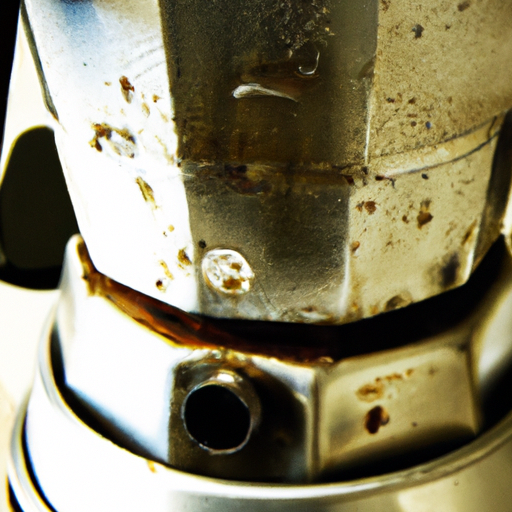Coffee makers have become an essential appliance in our daily lives, providing us with the fuel we need to start our mornings. But have you ever wondered how long these trusty machines usually last? It’s a common question that many of us have, especially considering the investment we make in purchasing one. In this article, we will explore the average lifespan of a coffee maker, factors that can affect its durability, and tips on how to extend its longevity. Whether you’re a coffee connoisseur or simply enjoy a good cup of joe, knowing how long your coffee maker is expected to last can help you make informed decisions when it’s time for an upgrade.
Factors affecting the lifespan of a coffee maker
When it comes to the lifespan of a coffee maker, several factors come into play. These factors can determine how long your coffee maker will last and the quality of the coffee it produces throughout its lifespan. Understanding these factors can help you make an informed decision when purchasing a new coffee maker. Let’s delve into each factor in detail.
Manufacturing quality
The manufacturing quality of a coffee maker plays a significant role in its lifespan. The quality of materials used and the build quality are essential considerations. A coffee maker made with high-quality materials is more likely to last longer and withstand the rigors of daily use. Stainless steel and durable plastics are often reliable materials for coffee maker construction. Additionally, a coffee maker with solid build quality will be less prone to wear and tear over time. It’s also wise to consider brand reputation, as some manufacturers are known for their commitment to producing long-lasting appliances.
Frequency of use
The frequency of use is another crucial factor determining how long your coffee maker will last. Coffee makers that are used regularly, such as those accompanying daily morning routines, may experience more wear and tear than those used less frequently. If you rely heavily on your morning cup of joe, it’s essential to invest in a coffee maker that can handle regular daily use. On the other hand, if you only use your coffee maker occasionally, it may last longer due to less strain on its components.
Maintenance and cleaning
Proper maintenance and cleaning routines significantly impact the lifespan of a coffee maker. Regular descaling, which involves removing mineral deposits that accumulate from water, is essential for maintaining the performance and longevity of your coffee maker. It’s also crucial to clean all removable components after each use to prevent buildup of coffee oils and residue, which can affect the taste of your coffee. Additionally, proper storage plays a role in prolonging the lifespan of your coffee maker. Storing it in a cool, dry place away from moisture and dust can help prevent issues over time.
Type of coffee maker
The type of coffee maker you choose can also influence its lifespan. Different coffee maker types have varying durability and longevity expectations. Let’s explore some common types:
Drip coffee makers
Drip coffee makers are a popular choice for households and offices due to their simplicity and ease of use. These machines typically have a lifespan of around 5-7 years with regular maintenance. However, the quality of the coffee maker and the usage patterns can significantly impact this timeframe. Common issues with drip coffee makers include clogged filters, malfunctioning heating elements, or leaking carafes. To ensure your drip coffee maker lasts as long as possible, follow the manufacturer’s maintenance guidelines, clean it regularly, and replace any worn-out components promptly.
Espresso machines
Espresso machines are often considered the premium option for coffee enthusiasts, providing the ability to create barista-worthy drinks at home. These machines typically have a longer lifespan, ranging from 7-10 years, when properly maintained. However, they are more complex and require regular cleaning and maintenance to ensure optimal performance. Common issues with espresso machines include clogged or worn-out components, malfunctioning pumps, and issues with pressure. To extend the lifespan of your espresso machine, follow the manufacturer’s recommended cleaning and maintenance schedule, use high-quality coffee beans, and descale regularly.
French press
The French press is a traditional and straightforward coffee brewing method that has gained popularity in recent years. This brewing device consists of a cylindrical glass or stainless steel container with a plunger and metal filter. With proper care, a high-quality French press can last for many years. However, the lifespan of a French press can be affected by accidents or mishandling, such as dropping or cracking the glass container. Regular cleaning and occasional replacement of the metal filter are essential for maintaining the quality and lifespan of your French press.
Single-serve machines
Single-serve machines, also known as pod or capsule machines, have revolutionized the convenience of brewing coffee at home or in the office. These machines generally have a lifespan of 3-5 years, but this can vary depending on the brand and model. Common issues with single-serve machines include clogged needles, malfunctioning pumps, or issues with the pod insertion mechanism. To maximize the lifespan of your single-serve machine, ensure you follow the manufacturer’s guidelines for cleaning and maintenance and use compatible coffee pods.
Environmental factors
Environmental factors can also have an impact on the lifespan of your coffee maker. Exposure to excessive heat and moisture can cause components to deteriorate more rapidly, leading to a shorter lifespan. It’s essential to place your coffee maker in a location that is dry and away from direct heat sources like stovetops or ovens. Additionally, power surges and voltage fluctuations can damage the electrical components of your coffee maker. Using surge protectors or voltage regulators can help mitigate the risk of damage from these environmental factors.
In conclusion, the lifespan of a coffee maker is influenced by several factors, including manufacturing quality, frequency of use, maintenance and cleaning routines, the type of coffee maker, and environmental factors. By considering these factors and incorporating suitable care and maintenance practices, you can extend the lifespan of your coffee maker and enjoy a fresh cup of coffee for years to come.




